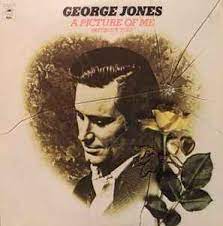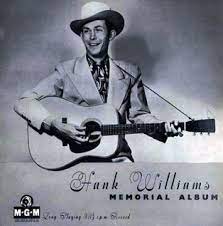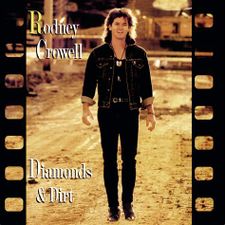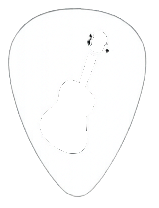Great Johnny Cash Guitar Songs
On The Acoustic
If you're a fan of Johnny Cash and love playing acoustic guitar, you're in the right place.
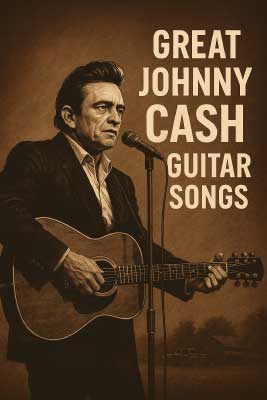
This collection of great Johnny Cash guitar songs features ten more fan-favorite tracks that showcase the storytelling, rhythm, and timeless charm of The Man in Black.
Whether you're drawn to his outlaw attitude, stripped-down country sound, or his deep vocal delivery, these songs will keep you strumming with soul.
You'll find helpful chord sheets, rhythm guidance, demo videos, and lesson options for every tune on this list.
🎸 Overview Video -
“Watch This Preview of My
Great Johnny Cash Guitar Songs”
Soon.
Johnny Cash Death Cause
Johnny Cash Museum Nashville
Johnny Cash Guitar Songs List
16 TonsA Boy Named Sue
Ain't No Grave
Ballad Of A Teenage Queen
Big River
Cocaine Blues
Cry Cry Cry
Delia's Gone
Flesh And Blood
Folsom Prison Blues
Get Rhythm
Ghost Riders In The Sky
Goodbye Little Darlin
Guess Things Happen That Way
Hey Porter
Home Of The Blues
Hurt
I Walk The Line
I Would Like To See You Again
If I Were A Carpenter
In The Jailhouse Now
It Ain't Me Babe
I've Been Everywhere
Jackson
Long Black Veil
Luther Played The Boogie
Ring Of Fire
San Quentin
Still In Town
Sunday Morning Coming Down
The Tennessee Flat Top Box
The Matador
Understand Your Man
Wanted Man
16 Tons - Learn To Play On Guitar
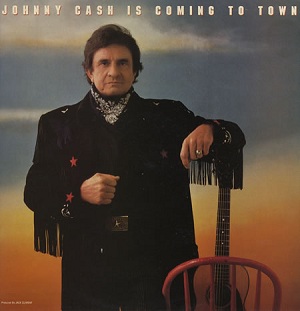
16 Tons comes from the 1987 album from Johnny Cash called Johnny Cash Is Coming To Town.
The song was written by Merle Travis and first recorded by him in 1946.
Johnny Cash never released the song as a single.
Tennessee Ernie Ford also did a version in 1955 and the song has been covered by numerous artists including Eddy Arnold, Bo Diddly and Red Sovine to name a few.
Chords And Strumming
I play this one in standard tuning with a few picking riffs scattered throughout. The rhythm pattern you'll need is a root down root up down up using the chords Am, Am/G, Am/Gb, E7 and a Dm.
Guitar Lesson Details - (chords & lyrics sheet incl with lesson)
Chords & LyricsBack To Song List
A Boy Named Sue - Learn To Play On Guitar
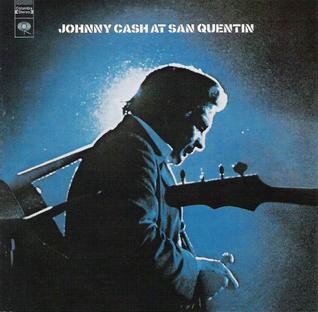
A Boy Named Sue was written by Shel Silverstein, who wrote many songs for Dr. Hook. This track appeared on the 1969 album Johnny Cash At San Quentin, a state prison in California.
The track did reach the top of the country charts and made it onto the Billboard Hot 100 list and was his only song to make it there.
Chords And Strumming
This one can be played with a capo on the 3rd fret with a root down up down up down up and repeat rhythm pattern but there is no lead work here. The chords you'll need are G, C7 and a D7.
Guitar Lesson Details - (chords & lyrics sheet incl with lesson)
Chords & LyricsBack To Song List
Ain't No Grave - Learn To Play On Guitar
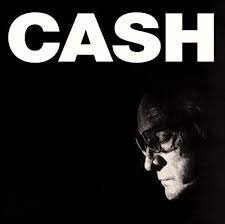
Ain't No Grave is a poignant and spiritually charged song with a unique history. Originally penned by 12-year-old Claude Ely, who was battling tuberculosis in 1934, the song took on new life when Johnny Cash recorded his version in 2003, shortly before his passing.
The track, featured on Cash's album "American IV," carries a profound sense of mortality and transcendence, reflecting Cash's deep connection to spiritual themes in his later works. Remarkably, the release of Cash's rendition occurred posthumously, adding an additional layer of significance to the song.
Chords And Strumming
This one I play with Drop D Tuning using the Dm, Gm and Am chords. There is some picking in this song while playing the rhythm pattern root down root up down up and repeat.
Guitar Lesson Details - (chords & lyrics sheet incl with lesson)
Chords & LyricsBack To Song List
Ballad Of A Teenage Queen - Learn To Play On Guitar
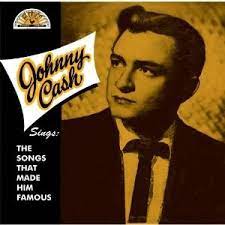
Ballad Of A Teenage Queen is a catchy and heartwarming song by Johnny Cash, released as a single in 1958 from the album "Sings the Songs That Made Him Famous." The song, just a little over 2 minutes long, swiftly climbed to the top spot on the US country charts, showcasing Johnny Cash's widespread appeal.
The lyrics tell the charming tale of a small-town girl who becomes a teenage queen, capturing the dreams and aspirations of youth in a nostalgic and melodic way.
"Ballad of a Teenage Queen" reflects Cash's ability to tell compelling stories through his music and remains a classic in the country music genre.
Chords And Strumming
I play this song with a capo on the 3rd fret with a root down root up down up and repeat rhythm pattern. There is some acoustic lead in here with the chords G, C and D.
Guitar Lesson Details - (chords & lyrics sheet incl with lesson)
Chords & LyricsBack To Song List
Big River - Learn To Play On Guitar
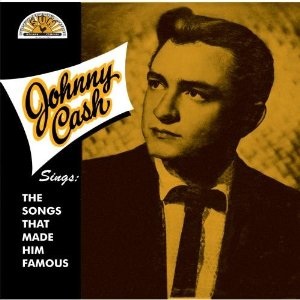
Big River was also released as a single from the 1958 album Johnny Cash Sings The Songs That Made Him Famous.
This track peaked at #4 on the country charts. There was a verse omitted from the original recording but there are some versions out there with the missing verse included.
Artists who have covered this song over the years include, Ian Tyson, Hank Williams Jr and The Grateful Dead to name a few.
Chords And Strumming
You can play this song in Drop D Tuning with the rhythm pattern root down up down up down up and repeat. There is a picking sequence in this one to learn while playing the chords E, Gb, A and B7.
Guitar Lesson Details - (chords & lyrics sheet incl with lesson)
Chords & LyricsBack To Song List
Cocaine Blues - Learn To Play On Guitar
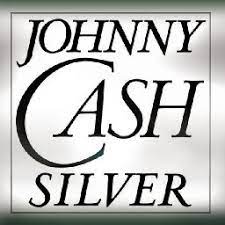
Cocaine Blues is a compelling song by Johnny Cash, first released as the B-side to the 1979 single "I'll Say It's True." While the single reached a respectable position at #42 on the charts, it's the vivid storytelling and energetic performance of "Cocaine Blues" that captures listeners' attention.
The song can also be found on Cash's album "Silver," showcasing his versatility in blending country, folk, and rock influences. "Cocaine Blues" tells the tale of a man who finds himself in a difficult situation after a night of indulgence, providing a gritty narrative that reflects Cash's ability to tackle darker themes in his music.
Chords And Strumming
I play this one in standard tuning using the chords C, G7 and F with a root down bass down and repeat rhythm pattern. There is a bit of picking in this one as well.
Guitar Lesson Details - (chords & lyrics sheet incl with lesson)
Chords & LyricsBack To Song List
Cry Cry Cry - Learn To Play On Guitar
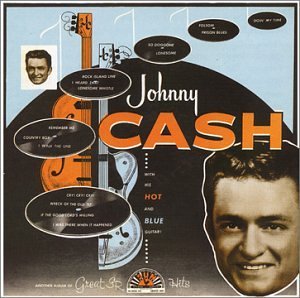
Cry Cry Cry was a single from the Johnny Cash debut album from 1955. The song peaked at #14 on the US Country charts.
This song came from the album Johnny Cash And His Red Hot Blue Guitar and was one of the first albums ever issued on Sam Phillips' Sun Records label.
Chords And Strumming
I like to use a Drop D Tuning for this song and a capo on the 3rd fret. The rhythm pattern you'll need is a root down up down up down up and repeat while playing the chords D, E, A, and a G. There is a bit of picking in this lesson.
Guitar Lesson Details - (chords & lyrics sheet incl with lesson)
Chords & LyricsBack To Song List
Delia's Gone - Learn To Play On Guitar
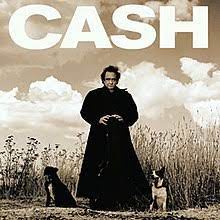
Delia's Gone is a haunting and somber song covered by Johnny Cash in 1994 for his album "American Recordings." The song tells a tragic story, as it was inspired by the real-life murder of a 14-year-old girl named Delia Green.
Cash's rendition of the song brings a raw and emotional depth to the narrative, capturing the darkness and intensity of the tale. While "Delia's Gone" didn't achieve chart success, its power lies in Cash's ability to convey the emotional weight of the story through his evocative vocals and minimalistic instrumentation.
The song is part of Cash's "American Recordings" series, which marked a period of creative resurgence for the artist.
Chords And Strumming
I play this song in standard tuning using a root down up root up down up and repeat rhythm pattern. There is no picking in this song, just rhythm while using the chords A, D, A7, B7 and E.
Guitar Lesson Details - (chords & lyrics sheet incl with lesson)
Chords & LyricsBack To Song List
Flesh And Blood - Learn To Play On Guitar
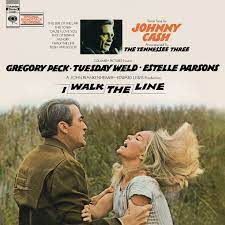
Flesh And Blood is a standout single from Johnny Cash's 1970 album "I Walk the Line." This evocative song reached an impressive #1 on the charts in both Canada and the United States, attesting to its widespread popularity.
The track showcases Cash's signature deep voice and heartfelt delivery, adding a personal touch to the lyrics. "Flesh and Blood" delves into themes of love and connection, exploring the depth of human relationships.
"Flesh and Blood" remains a testament to Johnny Cash's enduring influence and his ability to create music that speaks to the human experience.
Chords And Strumming
This number can be played in standard tuning with a root down root up down up and repeat rhythm pattern. You'll have a bit of picking in this song and you'll need the C, F, C7, D7 and G chords.
Guitar Lesson Details - (chords & lyrics sheet incl with lesson)
Chords & LyricsBack To Song List
Folsom Prison Blues - Learn To Play On Guitar
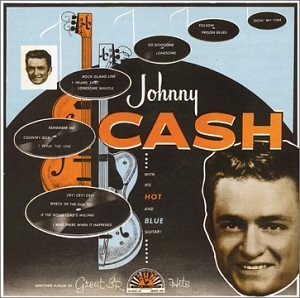
Folsom Prison Blues is included on Johnny Cash's debut studio album, titled "With His Hot and Blue Guitar!" The album was released in 1957 by Sun Records.
"Folsom Prison Blues" was written by Johnny Cash himself. He wrote the song while serving in the United States Air Force in Germany in the early 1950s. It was inspired by the 1951 film "Inside the Walls of Folsom Prison."
Chords And Strumming
This classic is usually played in the Key of E, but originally it was recorded higher in B, but still using the E,A and B7 chord shapes, sop they used a capo on the 2nd fret. Over the years, Johnny dropped the key down 1 fret. In this video lesson, I'm not going to use a capo at all, but feel free to capo up if you feel the need to do so.
There
are two ways you can play rhythm on this song. The first is a root down
up down up down up and repeat. Or you can play a bass note by playing
root down up bass up down up. I'll discuss both in the video lesson
The picking break in this is played higher on the fret board then I'm going to play it but in the lesson I'll show both positions. It's just the first part in E which can be played low or high, so with one guitar it sounds better low. And as the chord sheet and lyrics on this page indicate, you can play the same break twice or just skip the second break.
Guitar Lesson Details - (chords & lyrics sheet incl with lesson)
Chords & LyricsBack To Song List
Get Rhythm - Learn To Play On Guitar
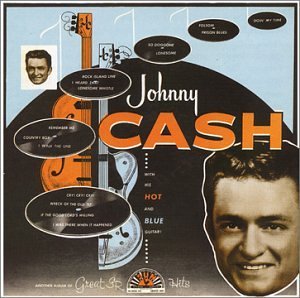
Get Rhythm was originally released as the B-side to the single to I Walk The Line back in 1956 and was not a track on the original album Johnny Cash And His Red Hot Blue Guitar album but was added later as a bonus track when the album was re-released.
Chords And Strumming
I use a Drop D tuning in this one with a capo on the 2nd fret. For rhythm you'll want to play a root down up down up down up with some walking bass. There is a bit of lead picking in this song with the chords D, G and A.
Guitar Lesson Details - (chords & lyrics sheet incl with lesson)
Chords & LyricsBack To Song List
Ghost Riders In The Sky - Learn To Play On Guitar
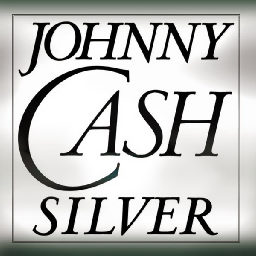
Ghost Riders In The Sky is a cowboy song written back in 1948 by a man named Stan Jones. Johnny Cash recorded the song for his 1979 album Silver.
The song peaked at #2 on the country charts for Johnny Cash.
Others who recorded the song were The Blue Brothers, Bing Crosby and Burl Ives to name a few.
Chords And Strumming
You can play this song in standard tuning with a capo 2nd fret with the chords Am, F and C. There are a few riffs to pick out while using the rhythm pattern root down up down up down up and repeat.
Guitar Lesson Details - (chords & lyrics sheet incl with lesson)
Chords & LyricsBack To Song List
Goodbye Little Darlin - Learn To Play On Guitar
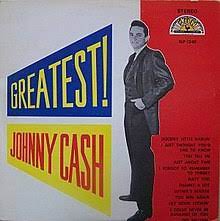
Goodbye Little Darlin is a heartfelt song by Johnny Cash featured on his 1959 album "Greatest." With its timeless melody and emotional lyrics, the song reached a commendable position at #22 on the US Country Charts.
Cash's distinct voice brings out the emotional depth of the farewell narrative, creating a poignant atmosphere that resonates with listeners. The simplicity of the arrangement allows the emotions to take center stage, showcasing Cash's ability to connect with his audience on a personal level.
Chords And Strumming
I use a capo 2nd fret for this song in standard tuning while playing a down up down up down up rhythm pattern with some walking bass. A bit of picking required in this number while playing the chords G, D, C, G7.
Guitar Lesson Details - (chords & lyrics sheet incl with lesson)
Chords & LyricsBack To Song List
Guess Things Happen That Way - Learn To Play On Guitar
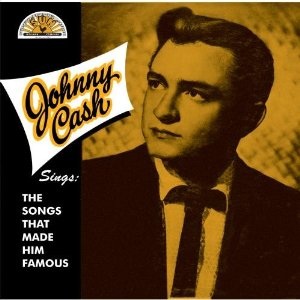
Guess Things Happen That Way is a song from Johnny Cash's 1958 album titled "Johnny Cash Sings The Songs That Made Him Famous." Jack Clement wrote this track, which became Cash's fourth song to reach number one on the country charts, holding that position for eight weeks.
The song tells the story of a man who is going through a tough time after losing the love of his life. It explores the feelings of struggle and loneliness after such a significant loss. Interestingly, when the song was released in 1958, the BBC (British Broadcasting Corporation) banned it because the person in charge of religious broadcasting objected to certain lines.
Chords And Strumming
Play this one using a root down up root up down up and repeat rhythm pattern in standard tuning. There is some picking required with the chords C, G, F, C7 and G7.
Guitar Lesson Details - (chords & lyrics sheet incl with lesson)
Chords & LyricsBack To Song List
Hey Porter - Learn To Play On Guitar
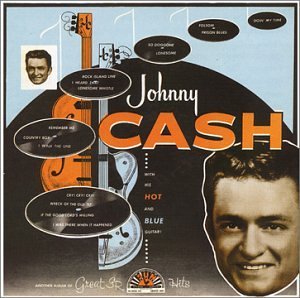
Hey Porter marks the inaugural recording by Johnny Cash and the Tennessee Two. Collaborating with bandmates Luther Perkins and Marshall Grant, Cash penned the song after their initial audition with "I Was There When It Happened" was rejected by Sam Phillips, the owner of Sun Records.
Phillips, known for his keen ear, expressed a preference for an up-tempo track reminiscent of Elvis Presley's "That's All Right," steering away from a gospel sound.
"Hey Porter" became the pioneer in a series of railroad-themed songs that would characterize Cash's illustrious career. Following closely was the release of "Folsom Prison Blues," another composition echoing the rhythmic resonance of train tracks.
Hey Porter was recorded in 1954 and wasn't released until 1955. This track also was not on the original debut album from Johnny Cash in 1955 but was added later as a bonus track when the album was re-released.
Chords And Strumming
I play this one with Drop D Tuning and a capo on the 3rd fret. The rhythm pattern required is a root down up down up down up and repeat playing the chords D, E7, A7, D7 and G. There is some picking in this song.
Guitar Lesson Details - (chords & lyrics sheet incl with lesson)
Chords & LyricsBack To Song List
Home Of The Blues - Learn To Play On Guitar
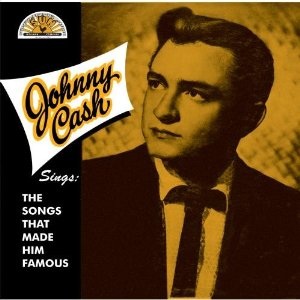
Home Of The Blues is also is a song from Johnny Cash's 1958 album titled "Johnny Cash Sings The Songs That Made Him Famous. It was co-written by Johnny Cash, along with Lillie McAlpin and Glenn Douglas Tubb, and produced by Jack Clement.
Johnny
recorded the song in Memphis, Tennessee, on July 1, 1957, and it became
a single in August of the same year reach #3 on the charts
Other artists have also recorded their versions of the song. Dwight Yoakam did a cover in 1988, Laughing Hyenas in 1995, and Owl City in early 2012. Additionally, Joaquin Phoenix recorded the song for the 2005 film "Walk the Line."
Chords And Strumming
The rhythm for this one is a root down up down up down up and repeat pattern with no lead work required. Played in standard tuning using the E, A, Gb and B7 chords.
Guitar Lesson Details - (chords & lyrics sheet incl with lesson)
Chords & LyricsBack To Song List
Hurt - Learn To Play On Guitar
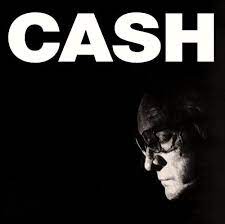
Hurt is a song from Nine Inch Nails and was recorded by Johnny for his last album in 2002 entitled American IV:The Man Comes Around.
The song reached #56 on the charts. The video is a very moving piece of work.
Chords And Strumming
No capo required here ans no lead work. Just a combo rhythm pattern of 1-2 up where 1-2 is arpeggio notes - then down-strokes while playing the chords Am, C, D, G and an Fmaj7.
Guitar Lesson Details - (chords & lyrics sheet incl with lesson)
Chords & LyricsBack To Song List
I Walk The Line - Learn To Play On Guitar
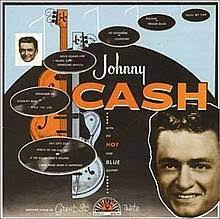
I Walk The Line is a classic hit by Johnny Cash that achieved remarkable success, reaching the coveted #1 spot on the country charts in 1956 and making its mark at #17 on the Pop charts. This early triumph not only catapulted Cash to stardom but also became one of his signature songs.
Featured on his debut album "With His Hot And Blue Guitar," the song's simple yet powerful melody and Cash's distinctive voice made it an instant favorite. Known for its unique blend of country and rockabilly influences, "I Walk the Line" carries a timeless quality that has resonated with audiences for decades.
Chords And Strumming
Another Johnny classic in standard tuning and no picking using the chords A, D, E and B7. For rhythm, play a root down up root down up and repeat pattern.
Guitar Lesson Details - (chords & lyrics sheet incl with lesson)
Chords & LyricsBack To Song List
I Would Like To See You Again - Learn To Play On Guitar
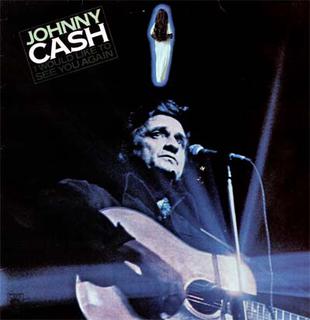
I Would Like To See You Again is a track from the album of the same name which was released back in 1978 and was Johnny's 57th album.
The song did manage to reach #12 and another song on that album called There Ain't No Good Chain Gang (with Waylon Jennings) hit #2.
Chords And Strumming
For rhythm play a root down up bass down up and repeat pattern in standard tuning using the chords A, D, E and a Gbm. There is some lead required for this song.
Guitar Lesson Details - (chords & lyrics sheet incl with lesson)
Chords & LyricsBack To Song List
If I Were A Carpenter - Learn To Play On Guitar
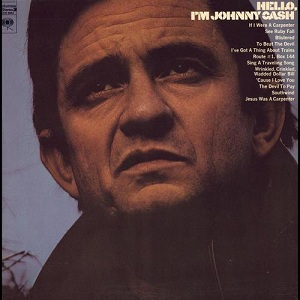
If I Were A Carpenter was recorded with June Carter Cash in 1970 for Johnny's album "Hello I'm Johnny Cash".
The song peaked at #2.
Chords And Strumming
I play this in standard tuning using a root down up down up down up rhythm pattern. There is a little lead work to cover using the three chords D, C and G.
Guitar Lesson Details - (chords & lyrics sheet incl with lesson)
Chords & LyricsBack To Song List
In The Jailhouse Now - Learn To Play On Guitar
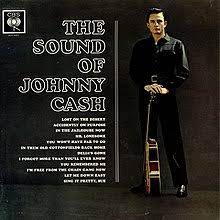
In The Jailhouse Now is a lively and memorable song recorded by Johnny Cash, released as a single in 1962. The track, showcasing Cash's distinct blend of country and folk influences, achieved success by reaching the impressive position of #8 on the US Country charts.
This spirited song is known for its energetic tempo and playful lyrics, telling the humorous story of a person who finds themselves in and out of trouble, ending up in the jailhouse. The song is part of Cash's album "The Sound of Johnny Cash," which features a mix of traditional tunes and original compositions.
Chords And Strumming
I play this one using the chords C, G, F, C7 and D7 with a capo on the 1st fret. Use a root down root up down up rhythm pattern. You'll pick a few riffs as you play through the rhythm.
Guitar Lesson Details - (chords & lyrics sheet incl with lesson)
Chords & LyricsBack To Song List
It Ain't Me Babe - Learn To Play On Guitar
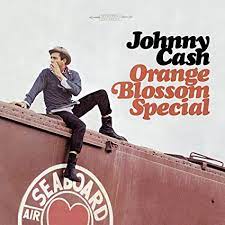
It Ain't Me Babe is a remarkable duet recorded by Johnny Cash and June Carter in 1964. This compelling song, which reached an impressive #4 on the country charts, showcases the chemistry between Cash and Carter, both musically and romantically.
The track is featured on the album "Orange Blossom Special," adding a touch of folk and country charm to the collection.
"It Ain't Me Babe" not only became a chart success but also marked an early collaboration between Cash and Carter, foreshadowing their future musical and personal journey together.
Chords And Strumming
A capo on the 4th fret is where Johnny is on this song playing the chords G, C, G6, D, Am and D7 while blending in a bit of picking. The rhythm pattern used here is a root down up down up down up and repeat.
Guitar Lesson Details - (chords & lyrics sheet incl with lesson)
Chords & LyricsBack To Song List
I've Been Everywhere - Learn To Play On Guitar
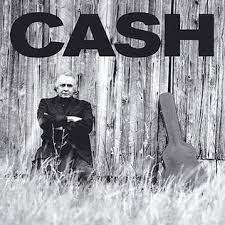
I've Been Everywhere is a spirited and travel-infused song that found its way into Johnny Cash's repertoire when he included it on his 1996 album "Unchained." Originally written by Australian singer Lucky Starr in 1962, the song showcased a unique concept by listing numerous Australian place names in its lyrics.
However, it gained further popularity when the American version was crafted and first recorded by Hank Snow in the same year. The song became a musical journey across both Australia and the United States, featuring a rapid-fire recitation of various locations.
Chords And Strumming
You can play this song in standard tuning with the three chords E, A and B7. No picking required while you play through the root down up down up down up rhythm pattern.
Guitar Lesson Details - (chords & lyrics sheet incl with lesson)
Chords & LyricsBack To Song List
Jackson - Learn To Play On Guitar
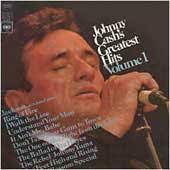
Jackson is a distinguished vibrant and well-loved duet recorded by Johnny Cash and June Carter in 1967. This spirited song, featured on the album "Johnny Cash's Greatest Hits Vol 1," not only showcases the musical chemistry between Cash and Carter but also highlights their real-life romantic connection.
"Jackson" climbed to an impressive #2 on the US country charts, attesting to the popularity of the duet. The song became a signature piece for Cash and Carter, symbolizing their deep connection and shared musical journey.
Chords And Strumming
Whether you’re drawn to the haunting simplicity of Long Black Veil, the storytelling grit of Delia’s Gone, or the rhythmic bounce of Still In Town, this collection keeps the Johnny Cash vibe rolling.
Each lesson is designed to make these legendary songs accessible and fun to learn on guitar. Be sure to check out the other volumes in this series and keep adding new Cash tunes to your setlist.
Guitar Lesson Details - (chords & lyrics sheet incl with lesson)
Chords & LyricsBack To Song List
Long Black Veil - Learn To Play On Guitar
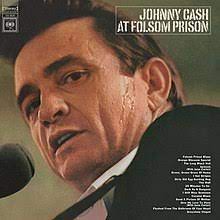
Long Black Veil is a classic song originally recorded by Lefty Frizzell in 1959, achieving notable success with a #6 hit. Johnny Cash, known for his adeptness at storytelling through music, later covered the song for his "Folsom Prison Blues" album.
Cash's rendition not only brought a renewed energy to the song but also showcased his ability to connect with diverse audiences, as demonstrated when he played it on his own television show in 1969.
"Long Black Veil" stands as a testament to the enduring power of storytelling through song, especially when delivered by an artist of Johnny Cash's caliber.
Chords And Strumming
Another one in standard tuning with a root down root up down up and repeat rhythm pattern and three chords C, G and F. Some picking to learn in this number.
Guitar Lesson Details - (chords & lyrics sheet incl with lesson)
Chords & LyricsBack To Song List
Luther Played The Boogie
- Learn To Play On Guitar
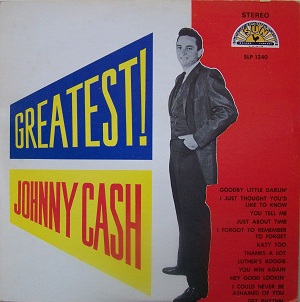
Luther Played The Boogie was a single from the Johnny Cash album of 1958 entitled "Greatest". The song was written by Johnny Cash about his guitarist at the time called Luther Perkins.
It charted at #8 on the country charts.
Chords And Strumming
I play this with a capo 2nd fret with a root down root up down up rhythm and insert a bit of picking in the middle. For chords you'll need an E, A, Gb and a B7.
Guitar Lesson Details - (chords & lyrics sheet incl with lesson)
Chords & LyricsBack To Song List
Ring Of Fire - (free lesson)
- Learn To Play On Guitar
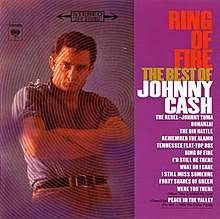
Ring Of Fire is one of Johnny Cash's most famous songs, released in 1963. It was co-written by June Carter Cash, Johnny's future wife, and Merle Kilgore. The song's distinctive mariachi-style horns and Cash's deep, emotive vocals contributed to its iconic status.
It's believed that June Carter was inspired to write the song by her feelings for Johnny Cash while he was still married to his first wife.
The song became a
massive hit for Cash, reaching No. 1 on the country charts and crossing
over to the pop charts as well.
Chords And Strumming
For rhythm you can play a root down up down up down up repeat rhythm pattern, where root is the note of the chord.
As shown, in the verse while on C you can add some bass into the rhythm by playing a root down up bass up down up pattern, until you switch to that F chord. You're bass note on C is that F note, either the top E string or the D string. So play that throughout the verse. In the chorus, while on G, you're open D string becomes the bass note, so play that root down up bass up down up there.
And finally you'll want to picking out that horn section as described in the video below and then wrap the bass and rhythm around it all to give you a full sound. All that's needed to finish off the song is vocals, either from you or someone else.
Guitar Lesson Details - (chords & lyrics sheet incl with lesson)
Chords & LyricsBack To Song List
San Quentin - Learn To Play On Guitar
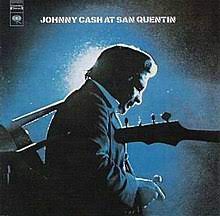
San Quentin stands as a powerful song written and performed by Johnny Cash during his legendary live show at the San Quentin State Prison in 1969. The song captures the raw energy and intensity of that performance, showcasing Cash's unique ability to connect with his audience, especially in the challenging setting of a prison.
While "San Quentin"
became a standout track on the album titled "At San Quentin," it's
noteworthy that, despite its popularity, the song was never released as a
single.
The live recording not only resonated with the audience at San Quentin but also became a symbol of Cash's commitment to using his music to reach people in unconventional settings.
Chords And Strumming
A capo on the 2nd fret will work here playing a root down up bass down up and repeat rhythm pattern. Picking is required in this song while playing the chords A, E and D.
Guitar Lesson Details - (chords & lyrics sheet incl with lesson)
Chords & LyricsBack To Song List
Still In Town
- Learn To Play On Guitar
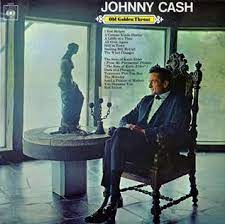
Still In Town hails from the Johnny Cash album Old Golden Throat, which was released in 1969 and was a compilation album of Johnny Cash songs spanning 10 years prior from 1958.
This track was the B-side to the song The Matador, listed below, which reached #2 on the charts.
Chords And Strumming
Johnny played this song with a capo on the 2nd fret in standard tuning. For the rhythm pattern you can play a root down up root up down up and repeat and some picking is required. For chords play G, D, D7, G7, C and an A7.
Guitar Lesson Details - (chords & lyrics sheet incl with lesson)
Chords & Lyrics SoonBack To Song List
Sunday Morning Coming Down - Learn To Play On Guitar
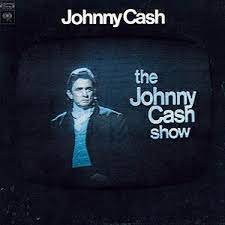
Sunday Morning Coming Down was written by Kris Kristofferson and was first recorded by Ray Stevens in 1969.
Johnny Cash performed the song on his television show and it became a track on his 1970 album The Johnny Cash Show. The song was also released as a single and hit #1 on the country charts and won a CMA award that year.
Chords And Strumming
There is no picking in this one but you will play a few riffs to fill in here and there while playing with a capo on the 3rd fret. Use a root down up down up down up and repeat rhythm pattern with the chords G, C, D, D7, Em and a G7.
Guitar Lesson Details - (chords & lyrics sheet incl with lesson)
Chords & LyricsBack To Song List
Tennessee Flat Top Box
- Learn To Play On Guitar
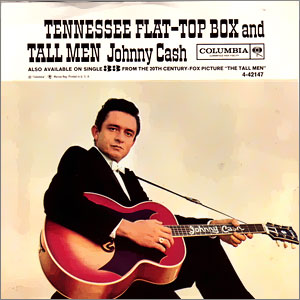
Tennessee Flat Top Box is a captivating song penned and recorded by the legendary American country music singer Johnny Cash. Released as a single in late 1961, the song achieved significant success, reaching the 11th position on the Billboard country singles charts and making a notable appearance at 84 on the pop charts.
The title of the song, "Tennessee Flat Top Box," is a nod to the steel-stringed acoustic guitar that plays a central role in the narrative. Cash's rich baritone voice, coupled with the catchy melody and rhythmic guitar strumming, adds a layer of authenticity to the storytelling.
Chords And Strumming
No drop D in this one but a capo on the 2nd fret is where this one is and picking throughout. Use the rhythm pattern root down up root up down up and the three chords C, F and G.
Guitar Lesson Details - (chords & lyrics sheet incl with lesson)
Chords & LyricsBack To Song List
The Matador - Learn To Play On Guitar
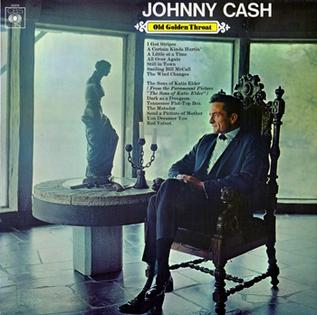
The Matador is a song from the Johnny Cash album Old Golden Throat, which was released in 1969 and was a compilation album of Johnny Cash songs spanning 10 years prior from 1958.
This number was written by Johnny and his wife June Carter Cash and reached #2 on the country charts.
Chords And Strumming
Use a simple G, C and D in this one with a capo on the 2nd fret. Play the rhythm pattern down up down up down down and repeat and be prepared for a little bit of lead picking.
Guitar Lesson Details - (chords & lyrics sheet incl with lesson)
Chords & Lyrics SoonBack To Song List
Understand Your Man - Learn To Play On Guitar
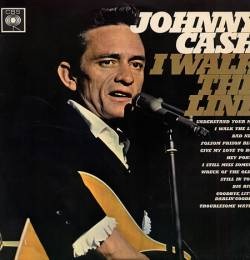
Understand Your Man is from the 1964 album "I Walk The Line" and was the first single from that album.
The song hit #1 on the country charts.
Chords And Strumming
This song is played in standard tuning with a root down up down up down up and repeat rhythm pattern in standard tuning. A bit of picking here while playing the chords G, Em, C, D, G7 and A7.
Guitar Lesson Details - (chords & lyrics sheet incl with lesson)
Chords & LyricsBack To Song List
Wanted Man - Learn To Play On Guitar
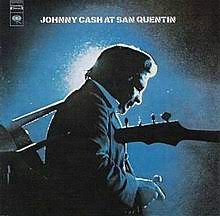
Wanted Man is a notable song with a unique history, written by Bob Dylan for his friend Johnny Cash. The song was first recorded during Cash's iconic live performance at San Quentin in 1969, which was later released as the live album "At San Quentin."
Although "Wanted Man" wasn't initially released as a single, it gained recognition for its collaboration between two music legends. Years later, in 1991, Johnny Cash included the song in his album "The Mystery of Life," but unfortunately, the single release did not chart.
Chords And Strumming
I play this one in standard tuning with a root down up bass up down up and repeat rhythm pattern. A bit of lead required with the four chords G, A, D and a C.
Guitar Lesson Details - (chords & lyrics sheet incl with lesson)
Chords & LyricsBack To Song List
Johnny Cash’s catalog runs deep, and these ten songs offer a mix of heartache, grit, and Americana that’s fun to learn and rewarding to play. Whether you're revisiting old favorites or discovering new ones, each song brings something special to your acoustic guitar journey.
Be sure to check out our other Johnny Cash guitar pages for even more lessons, and explore the full collection to build a setlist worthy of any front porch or stage.
If you liked this Johnny Cash top songs page you might also like ... (click images)
Very Easy Country Guitar Songs
